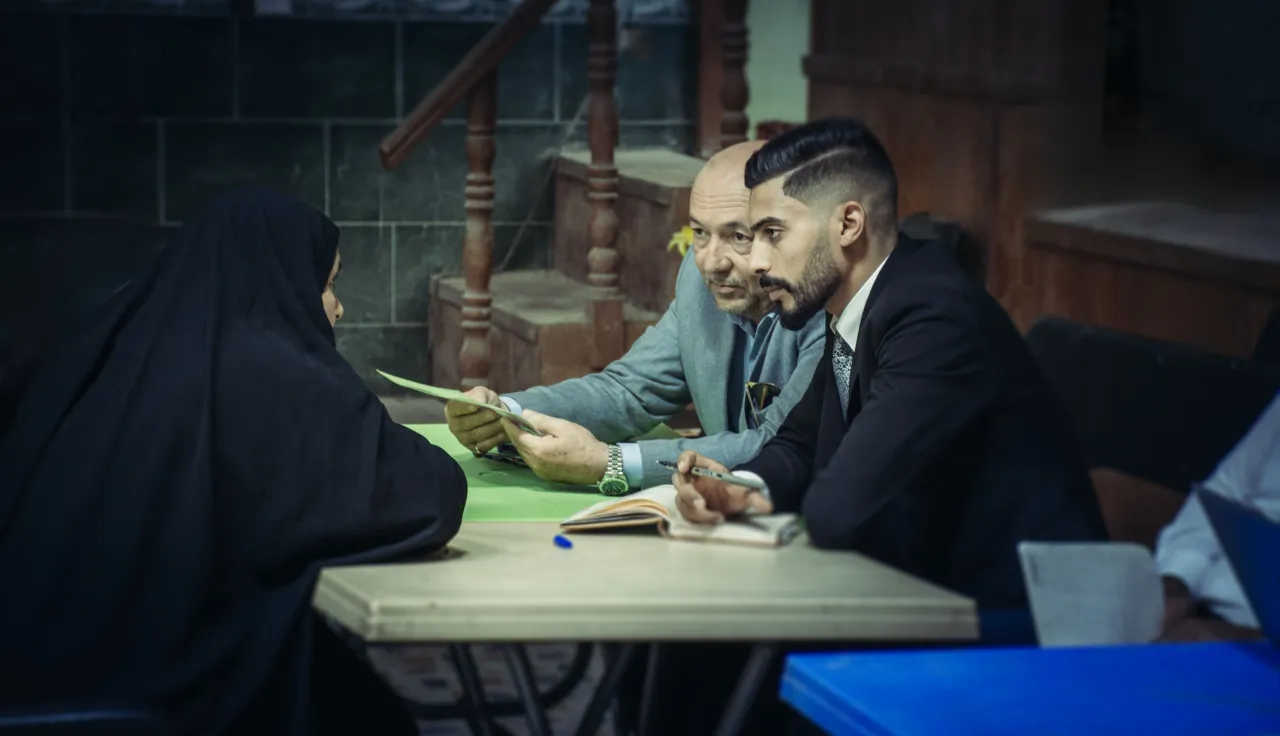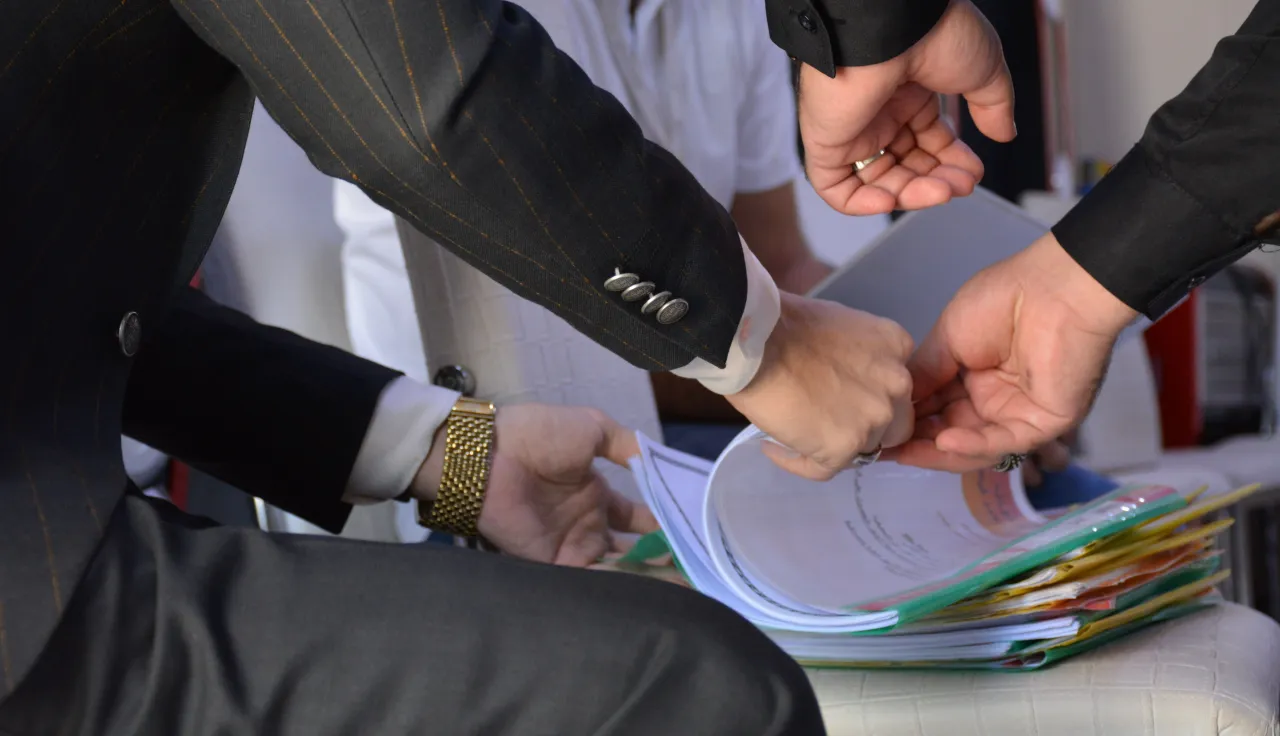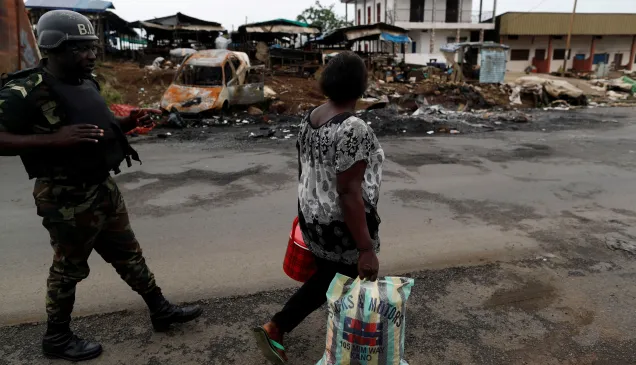Iraq: Providing access to legal support for families of missing persons

Nothing can describe the anguish and uncertainty that families go through when a loved one goes missing. This is compounded by the difficulties that families of the missing face in understanding and accessing legal pathways (obtaining civil documentation, the process of clarifying their fate and whereabouts and the identification of human remains), which at times translates into a sense of hopelessness and despair.
The impact for families
In Iraq, families of missing persons face immense difficulties in accessing necessary official documentation, which is critical for their day-to-day lives, impacting their legal status and access to various services. Recognizing these challenges, in February 2023 the International Committee of the Red Cross (ICRC) and the Iraqi Bar Association (IBA) signed a Memorandum of Understanding (MOU) to mobilize lawyers registered with the IBA to provide legal consultation and representation for families of missing persons who are enrolled in the ICRC’s Accompaniment Programme to address their legal and administrative needs.
This MoU was renewed in April 2024 increasing the number of supported families (from 48 in 2023 to 420 in 2024), covering 6 areas where the Accompaniment Programme is being implemented in Iraq. It creates a strategic partnership between the ICRC and IBA to ease the struggles of these families in obtaining essential civil documentation such as birth certificates, national identity cards, curatorship documents and death declarations. In its first year of implementation, the MOU focused on two geographical areas: Saqlawiya in Anbar governorate and Kirkuk governorate in Iraq. In 2024 this has been expanded to include North of Babil, Dohuk, and Talafar, Abu Maria and Sinjar in Mosul.

Key outcomes so far in Saqlawiya and Kirkuk (with other pending cases still being processed)
Communication between lawyers and Families
To ensure effective communication and service provision, several sessions were conducted in Saqlawiya for families of missing persons taking part in the ICRC’s Accompaniment Programme. These included an informative session led by three IBA lawyers for 25 accompaniers, followed by 10 sessions between families, accompaniers, and lawyers to attribute cases, and case follow-up. The ICRC also conducted several meetings and discussions with various authorities including the judiciary to facilitate the process of obtaining documentation.
Sabrin Kareem, whose husband is missing, shared her experience: "This allowed me to get the unified national identity cards for my two children. It has made it easier for them to access many services and benefits, including official school registration, social welfare, and other programmes provided by NGOs and government institutions." She pointed out the challenges of obtaining official documents which earlier would have cost her between 400,000 – 800,000 Iraqi Dinars, an expense she could not afford given her living costs.
Abdelhameed Fadel, one of the participating lawyers who volunteered for this project said, "I have a missing relative, so I relate to their [families of the missing] suffering." He added, "The coordination between the ICRC and IBA is so successful that I began receiving calls from other governorates, like Salah al-Din and Karbala, from families of the missing not referred by the ICRC, asking for my help with their documentation procedures," showing the widespread impact and demand for this initiative.
The way forward
The MoU between IBA and ICRC has led to the provision of crucial documentation and legal support, directly and positively impacting the lives of many families of missing persons. The success of this MOU can be attributed to the dedicated efforts of six IBA lawyers, whose commitment and continuous collaboration with the ICRC and local authorities has ensured that families receive the necessary support and guidance.
The accompaniment programme in Iraq
Since 2021, the ICRC has been running a series of targeted programmes in different regions of Iraq to support families of missing persons to cope with the ambiguous loss of their missing relatives. The programme seeks to address their diverse needs through the creation of support networks that respond to the multifaceted needs that may arise from the absence of a loved one. This programme focuses on legal, administrative, and economic challenges faced by families and helps alleviate their psychosocial and mental needs through the creation of bonds between families of missing persons, who share the same plight.
If you are living in Iraq and have a missing loved one, feel free to reach out to us with any inquiries. You can call our toll-free community contact center at 80022222. Our team is available to assist you in Kurdish, Arabic, and English from Sunday to Thursday, 8:30 AM to 3:30 PM.



